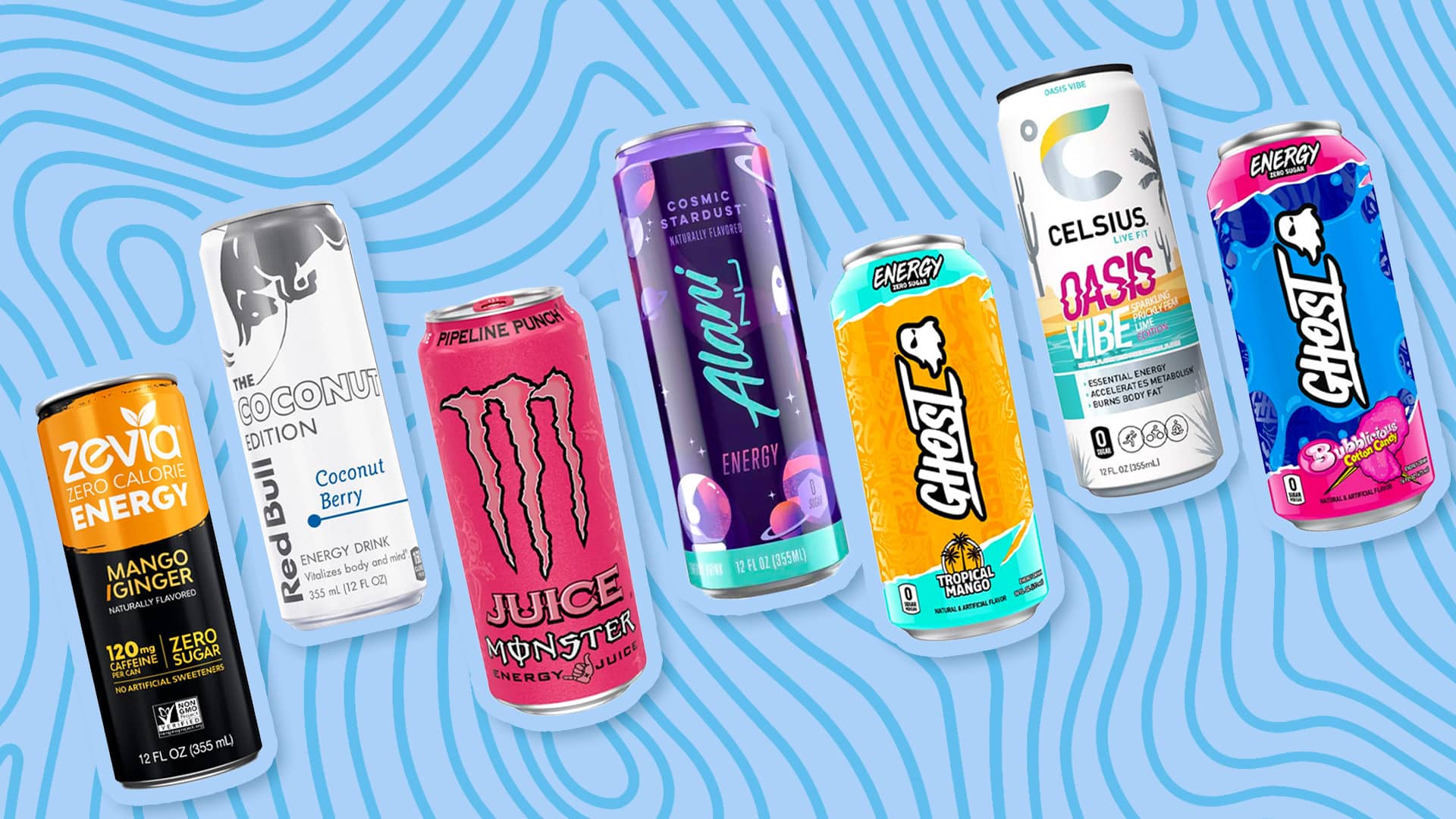
Are energy drinks safe? This question buzzes in the minds of many, especially teens and young adults. These beverages promise a quick jolt of energy, but what's really inside that flashy can? Energy drinks often contain high levels of caffeine, sugar, and other stimulants. While they can boost alertness and performance, they also come with potential risks. Overconsumption can lead to heart issues, anxiety, and sleep disturbances. Some even mix them with alcohol, which can mask intoxication and lead to dangerous situations. Understanding the facts about these popular drinks can help you make informed choices. Let's dive into 26 key facts about energy drinks to uncover the truth behind the buzz.
What Are Energy Drinks?
Energy drinks are popular beverages that claim to boost energy, alertness, and concentration. They often contain caffeine, sugar, and other ingredients like vitamins and herbal extracts. Here are some interesting facts about these drinks.
-
Caffeine Content: Energy drinks typically contain between 70 to 240 mg of caffeine per serving, which is more than a cup of coffee.
-
Sugar Levels: Some energy drinks have up to 54 grams of sugar per can, which is more than the recommended daily intake for adults.
-
Popular Brands: Red Bull, Monster, and Rockstar are among the most well-known energy drink brands worldwide.
Ingredients in Energy Drinks
Understanding what goes into these drinks can help you make informed choices. Here are some common ingredients found in energy drinks.
-
Taurine: An amino acid that supports neurological development and regulates water and mineral levels in the blood.
-
Guarana: A plant extract that contains caffeine and is often added to energy drinks for an extra boost.
-
B Vitamins: These vitamins help convert food into energy and are commonly included in energy drinks.
Health Effects of Energy Drinks
Energy drinks can have both positive and negative effects on your health. Here are some facts about their impact.
-
Increased Alertness: The caffeine in energy drinks can improve focus and concentration.
-
Heart Health: High caffeine and sugar content can increase heart rate and blood pressure, posing risks for heart health.
-
Sleep Disruption: Consuming energy drinks late in the day can interfere with sleep patterns.
Energy Drinks and Exercise
Many people consume energy drinks before or after workouts. Here’s what you need to know about their effects on exercise.
-
Enhanced Performance: Some studies suggest that energy drinks can improve physical performance and endurance.
-
Dehydration Risk: The diuretic effect of caffeine can lead to dehydration, especially during intense exercise.
-
Muscle Cramps: High caffeine intake can cause muscle cramps and spasms.
Regulations and Safety
Energy drinks are regulated differently around the world. Here are some facts about their safety and regulation.
-
Age Restrictions: Some countries have age restrictions on the sale of energy drinks to minors.
-
Labeling Requirements: Many regions require energy drinks to list caffeine content and health warnings on their labels.
-
FDA Oversight: In the United States, the FDA monitors the safety of energy drinks but does not approve them before they go to market.
Energy Drinks and Mental Health
The impact of energy drinks on mental health is a growing area of research. Here are some findings.
-
Anxiety: High caffeine intake from energy drinks can increase anxiety levels.
-
Mood Swings: The sugar crash after consuming energy drinks can lead to mood swings and irritability.
-
Addiction Potential: Regular consumption can lead to caffeine dependence and withdrawal symptoms.
Alternatives to Energy Drinks
If you’re looking for a healthier way to boost your energy, consider these alternatives.
-
Green Tea: Contains less caffeine than energy drinks and offers antioxidants.
-
Smoothies: A blend of fruits, vegetables, and protein can provide a natural energy boost.
-
Water: Staying hydrated is one of the simplest ways to maintain energy levels.
Environmental Impact
The production and disposal of energy drink cans have environmental consequences. Here are some facts about their impact.
-
Aluminum Cans: Most energy drinks come in aluminum cans, which require significant energy to produce and recycle.
-
Plastic Waste: Some energy drinks are sold in plastic bottles, contributing to plastic pollution.
-
Carbon Footprint: The production and transportation of energy drinks contribute to greenhouse gas emissions.
Market Trends
The energy drink market is constantly evolving. Here are some trends to watch.
-
Natural Ingredients: There is a growing demand for energy drinks made with natural ingredients and no artificial additives.
-
Functional Beverages: Some energy drinks now include additional health benefits, such as added electrolytes or probiotics.
Final Sip on Energy Drinks
Energy drinks pack a punch, but they come with a mix of benefits and risks. They can boost alertness and performance, yet overconsumption can lead to health issues like heart problems and anxiety. Ingredients like caffeine, taurine, and sugar play a big role in their effects. While they offer a quick energy boost, it's crucial to consume them in moderation. Kids, teens, and pregnant women should be extra cautious. Always read labels and understand what you're putting into your body. Natural alternatives like water, green tea, and balanced meals can also provide energy without the side effects. So, next time you reach for that can, think about the pros and cons. Stay informed, stay healthy, and make choices that benefit your well-being.
Was this page helpful?
Our commitment to delivering trustworthy and engaging content is at the heart of what we do. Each fact on our site is contributed by real users like you, bringing a wealth of diverse insights and information. To ensure the highest standards of accuracy and reliability, our dedicated editors meticulously review each submission. This process guarantees that the facts we share are not only fascinating but also credible. Trust in our commitment to quality and authenticity as you explore and learn with us.


